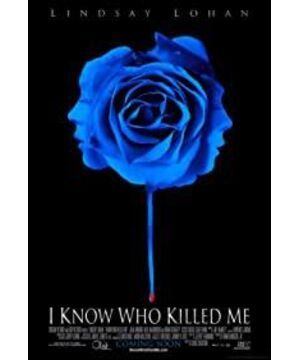I believe that the colleagues who have said so many things do not bother to read mystery novels, or may also go to see things like "The Da Vinci Code", but they must have rarely heard of Agatha. Christie, Ellery Quinn, Kazuo Kanada, Ranbu Edogawa, Jiro Akagawa are these names. Although most of the films should be classified, because it helps the audience to better understand the film, but a small part of the film is not suitable for classification, which will make the audience look at the story with a certain established point of view or mode. In this way, classification is a poison to the story itself.
Like this "I Know Who Killed Me" (I Know Who Killed Me), it is not suitable for simply categorizing it into a horror movie, or you put it into science fiction horror after watching it; put it into suspense I have no objection to the film, and if it must be classified, I suggest that it be classified into the inference film according to one of the classification methods of mystery novels.
According to my opinion, the layout of the story, except for the point of view that led to a certain mysterious connection between the twins, hastily (this is also the most important point, so that it has become the film's biggest flaw, but it does not hide the flaws). Very well done:
On the one hand, a large number of suspects are set up according to the existing patterns of the mystery, such as the gardener boy who uses the shredder (which gives the impression of violence), and the boy who pursues Aubrey with the blue rose (blue is used in this film). As a tone to create an atmosphere, it’s not surprising that he became a suspect; but I believe that the director or screenwriter will not be so mentally retarded, so he was the first to be ruled out), rejected pianist (in the prosthesis maker) Before it appeared, this was my biggest suspect, and in the end, of course, it was unexpected), the prosthetic maker (this reminds me of the prosthetic maker freezer serial killer in the first season of "Dexter"; I was almost misled by the director Now, this person is designated as the biggest suspect, because only this person speaks of the victim as Dakota, not Aubrey; because generally speaking, only the prisoner knows that the victim has not escaped his clutches, and the girl in front of him is definitely not even if she looks alike. Victim, maybe this is still a cloud of suspicion laid by the police-but I thought about it afterwards. If the prisoner was really that smart, he would definitely think of this too. Then he would not call the victim Dakota, because that would only Will be suspicious, of course, it’s much wiser to call it Aubrey like everyone else; so this suspect can also be ruled out), and even parents (this is just an arranged afternoon dessert, basically OK Don't worry about it) Wait.
On the other hand, the setting and description of the victim, the general reasoning story, the investigator (the detective) is always the most important role (the main perspective), and the repeated weakening of this role in this film is also based on the victim. An adjustment made by the main perspective, and it is this effort that makes this horror film completely different from other remaining horror films, and gives it a special distinctive label; and, in fact, it can be said The film was originally intended not to have a horrible effect, but from the two aspects of the suspect and the victim’s statements to make the audience suspicious, and then reveal the truth in the last paragraph of the story, giving a possible ending-the climax Staying at the end, this is very Agatha Christie, but the skill of the screenwriter still needs to be practiced, which makes this climax change seem a bit far-fetched (or far from reaching the requirements of the climax), but fortunately The director’s excellent atmosphere creation (backing of music, tension of the picture) to a large extent made up for this defect, weakening the process and becoming part of the concise style advocated by the story (referring to some details that have nothing to do with the main perspective. Processing of the plot).
From the above two points, we can generally classify the film as a double-C classic of Classic and Cult. How can it be considered rubbish? (Text/len calvin)
PS. The colleagues who write reviews should pay more attention to suspense films like this. You have to take care of those who haven’t watched them, and they should also be marked as "beware of spoilers." Is it a truth? Of course, "Double Suspected Kill" also gives people a sense of art, which has become one of the selling points of the film.
View more about I Know Who Killed Me reviews











